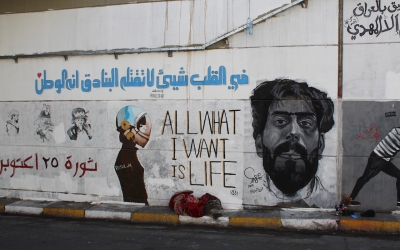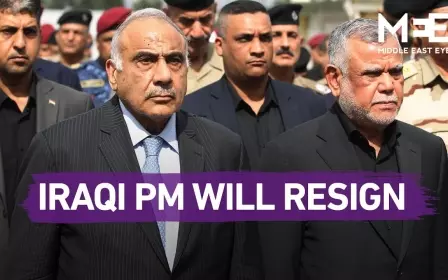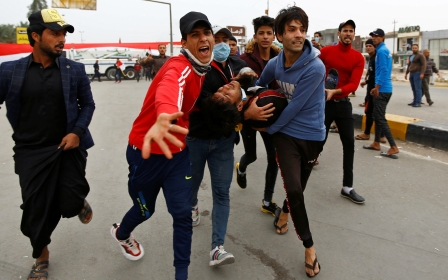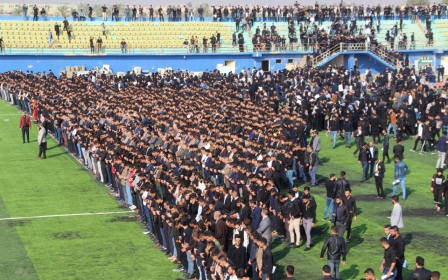Iraqi photographer abducted outside Baghdad home after covering protests
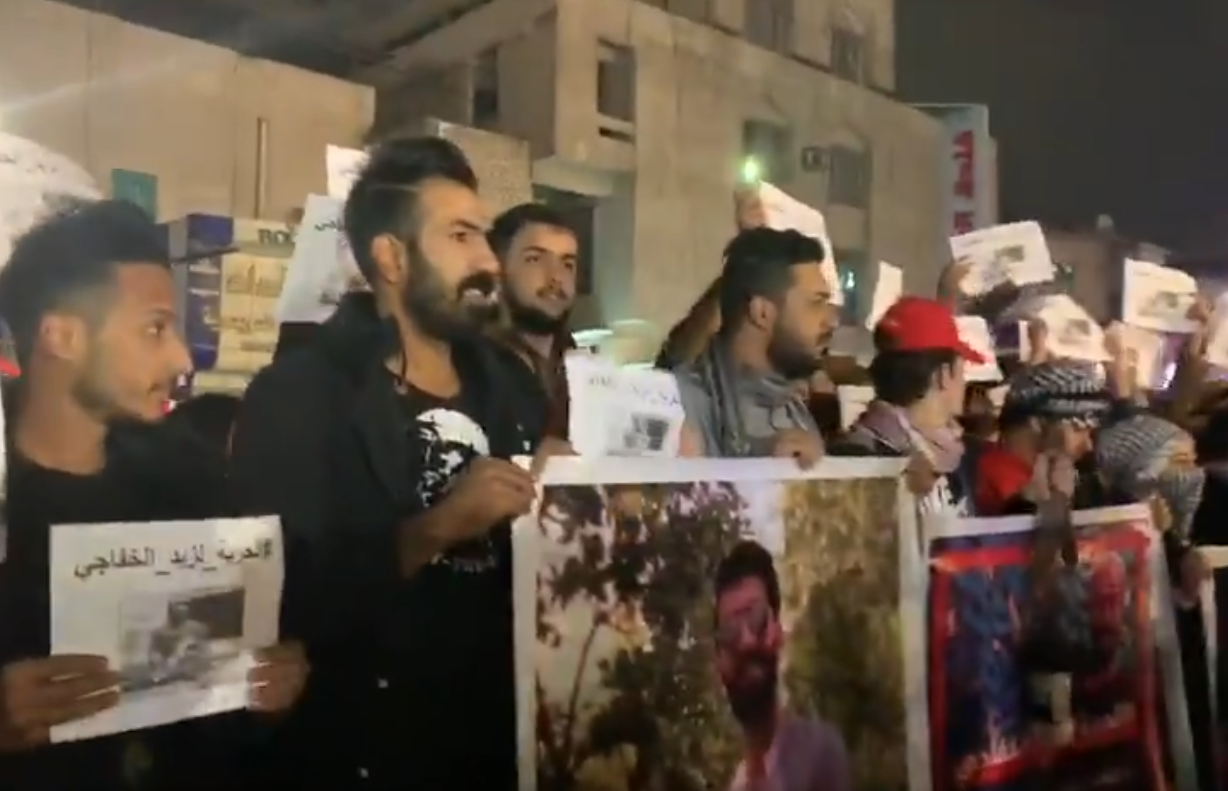
Demonstrators gathered in Baghdad's Tahrir Square on Friday calling for the release of a photographer who disappeared in the early hours of the morning.
Zaid al-Khafaji, 22, a photojournalist who had documented Iraq's ongoing protest movement since the beginning of December, disappeared while walking home from Tahrir Square, which has become the epicentre of anti-government demonstrations.
'Zaid knocked on the door at 4am. We heard screaming and shouting and when we opened the door, he was gone'
- Relative of Zaid al-Khafaji
One family member, sounding audibly upset on the phone, told Middle East Eye that Khafaji had been taken from outside their house.
"Zaid knocked on the door at 4am. We heard screaming and shouting and when we opened the door, he was gone," they said.
The relative said they had no idea as to why he had been taken.
New MEE newsletter: Jerusalem Dispatch
Sign up to get the latest insights and analysis on Israel-Palestine, alongside Turkey Unpacked and other MEE newsletters
"We did not hear back from the authorities so far, but we have told the police," the relative said.
"The only thing we can do is keep following up with the police and the internal ministry. We have no other choice."
Eyewitnesses told Iraqi media that a black car containing four men had been seen taking Khafaji.
Protesters, including friends and fellow photographers, carried pictures of Khafaji and held up cameras as they gathered and demanded his release.
"Freedom, freedom for Zaid Mohammed!" chanted the demonstrators.
'Campaign of intimidation'
In a statement on Twitter, Amnesty International condemned the abduction of Khafaji and warned that such incidents were becoming too common.
"Activists, journalists and protesters across Iraq have endured a relentless campaign of intimidation since 1 October and the failure of Iraq authorities to put an end to these arbitrary arrests and abductions only sends a message of tolerance for these abuses," said the rights group.
Since the beginning of protests against corruption, unemployment and the political class, which began on 1 October, more than 430 demonstrators have been killed and tens of thousands wounded amid a crackdown by the security forces.
Last week, demonstrators forced the resignation of Prime Minister Adel Abdul Mahdi, who resigned after the intervention of top Shia cleric Ali Sistani. He said he will stay on in a caretaker capacity until a new government is chosen.
President Barham Salih officially has until 6 December to name a new premier tasked with forming a government to be approved by parliament up to a month later.
Parliamentarians say they will then move to hold a general election next year, though this has done little to persuade protesters angry at the harsh response of the security forces.
There have been numerous threats and attacks against journalists and media outlets in Iraq. A number of outlets have been raided by masked gunmen, while nine journalists are listed as "missing" by the Committee to Protect Journalists.
In October, the outlets Nas News and Al-Hurra moved their offices from premises in Baghdad to the Kurdish region of Iraq after being threatened by masked men.
A report by Reporters Without Borders ranked Iraq amongst the bottom 13 percent of countries when it comes to press freedoms and safety.
Middle East Eye delivers independent and unrivalled coverage and analysis of the Middle East, North Africa and beyond. To learn more about republishing this content and the associated fees, please fill out this form. More about MEE can be found here.


